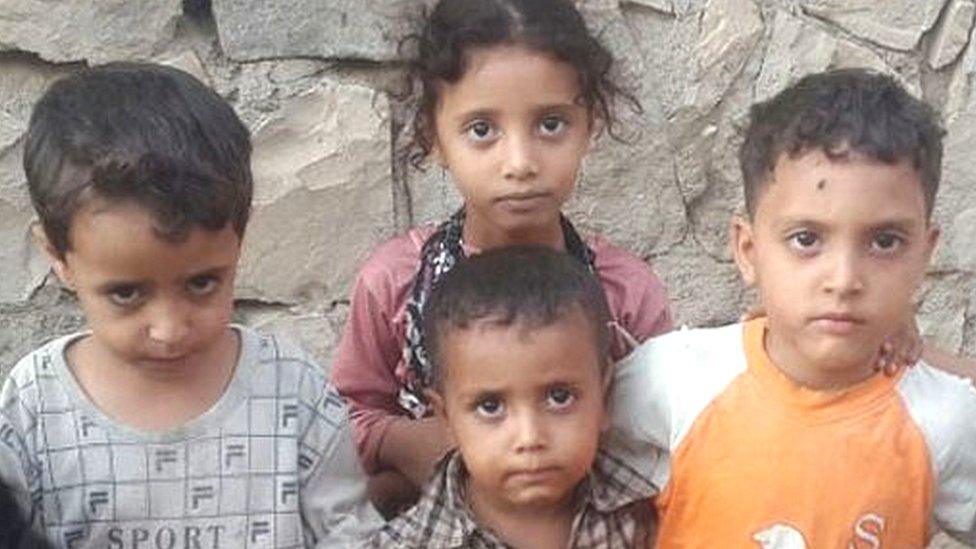Yemen rebel missile fired at Riyadh 'bears hallmarks' of Iran
- Published
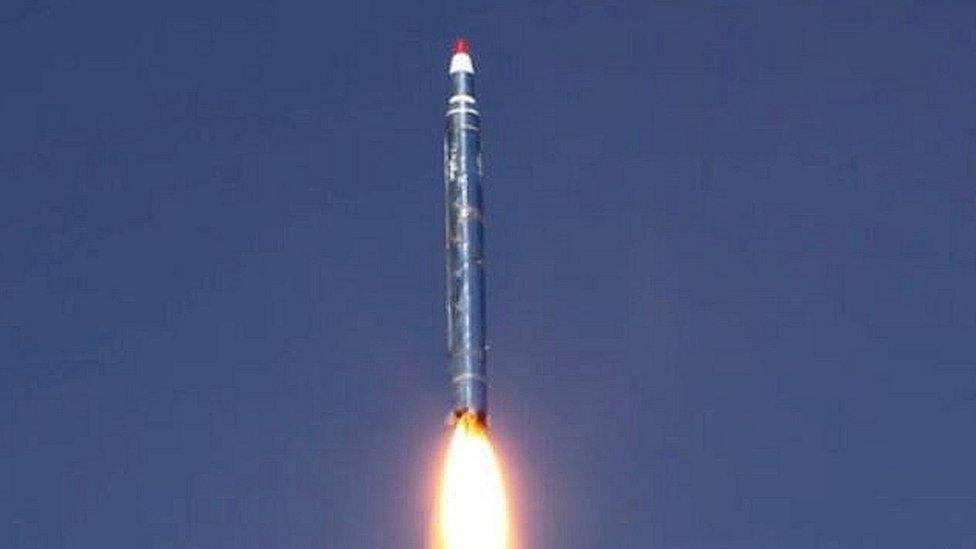
Houthi media released images of the missile it says was fired towards Saudi Arabia
A missile fired from Yemen at the Saudi Arabian capital, Riyadh, bears the hallmarks of a weapon provided by Iran, the US ambassador to the UN has said.
Nikki Haley said Iran's actions threatened to drag the world "deeper into a broadening regional conflict".
The missile was shot down by Saudi Arabia's military on Tuesday. There were no reports of any damage.
Iran denies arming Houthi rebels in Yemen who are fighting Yemen's government and a Saudi-led coalition.
The Houthis' Al Masirah TV reported that a Burkan H2 ballistic missile had been targeted at a royal palace in Riyadh.
Addressing the UN Security Council in New York, Mrs Haley said the missile "bears all the hallmarks of previous attacks using Iranian-provided weapons".
"We must all act co-operatively to expose the crimes of the Tehran regime and do whatever is needed to make sure they get the message. If we do not, then Iran will bring the world deeper into a broadening regional conflict," she said.
She suggested a list of measures the council could take against Tehran but Russia, which has friendly relations with Iran, signalled it would not support them.

A report on Al Masirah's website said the launch was "in response to the heinous crimes committed by the US-Saudi aggression against the people of Yemen".
The missile had targeted a "meeting of the leadership of the Saudi regime in al-Yamama Palace in Riyadh", during which Crown Prince Mohammed bin Salman was expected to discuss the kingdom's annual budget, Al Masirah said.
The palace is the main headquarters of the king's office and the royal court.
Minutes later, Saudi state-run Al Ikhbariya TV reported that a missile had been intercepted south of the capital.
Videos posted online showed a white cloud above the city and the sound of an explosion.
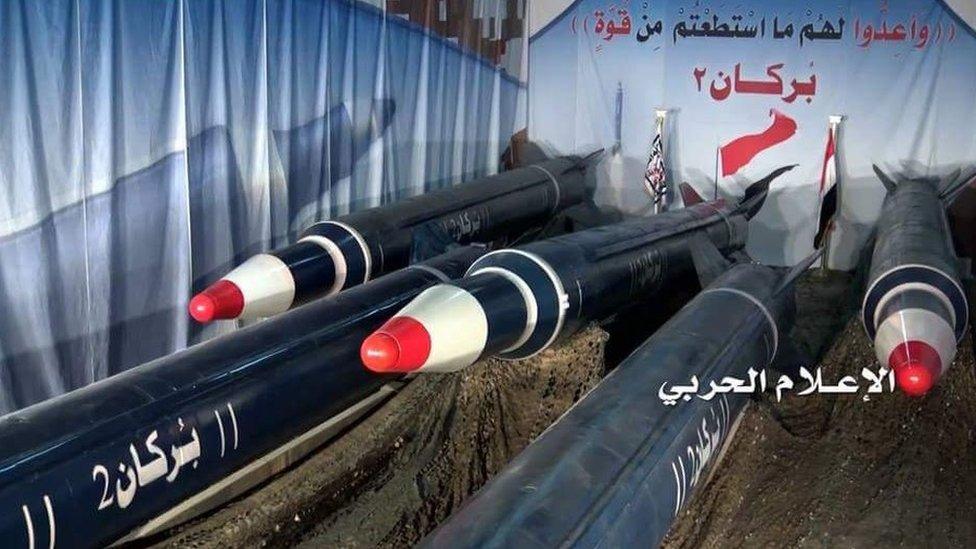
The Houthi movement unveiled the Burkan 2 missile in February 2017
Coalition spokesman Col Turki al-Maliki said the missile was intercepted by a Patriot missile south of the city.
He said the attack proved the "continued involvement" of Iran in supporting the Houthis.
Another Burkan H2 came close to hitting Riyadh's King Khalid International Airport on 4 November.
Saudi officials said US-supplied Patriot batteries had also intercepted the missile in flight. But analysts have since cast doubt on that assertion and said the missile's warhead landed close to the domestic terminal.
The US, which backs the coalition's military campaign in Yemen, later said it had "undeniable" evidence that the missile had been made in Iran, external.
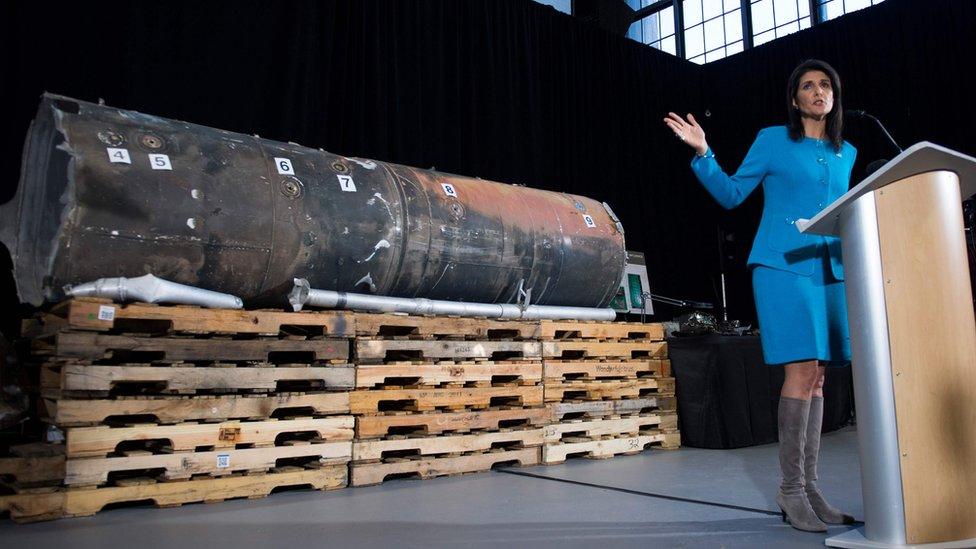
Last week, Nikki Haley unveiled remnants of the missile fired towards Riyadh in November
Saudi Arabia intervened in its neighbour's civil war in March 2015 partly to counter perceived Iranian influence on the Houthis, which champion the Zaidi Shia minority.
Iran has denied backing the rebels militarily and insisted that the missile launches are "independent actions" in response to Saudi-led coalition aggression.
More than 8,670 people have been killed and 49,960 injured since the coalition intervened in Yemen's war, according to the UN.
The fighting and the coalition blockade have also left 20.7 million people in need of humanitarian aid, created the world's largest food security emergency and led to a cholera outbreak that is thought to have killed 2,219 people since April.
- Published14 December 2017
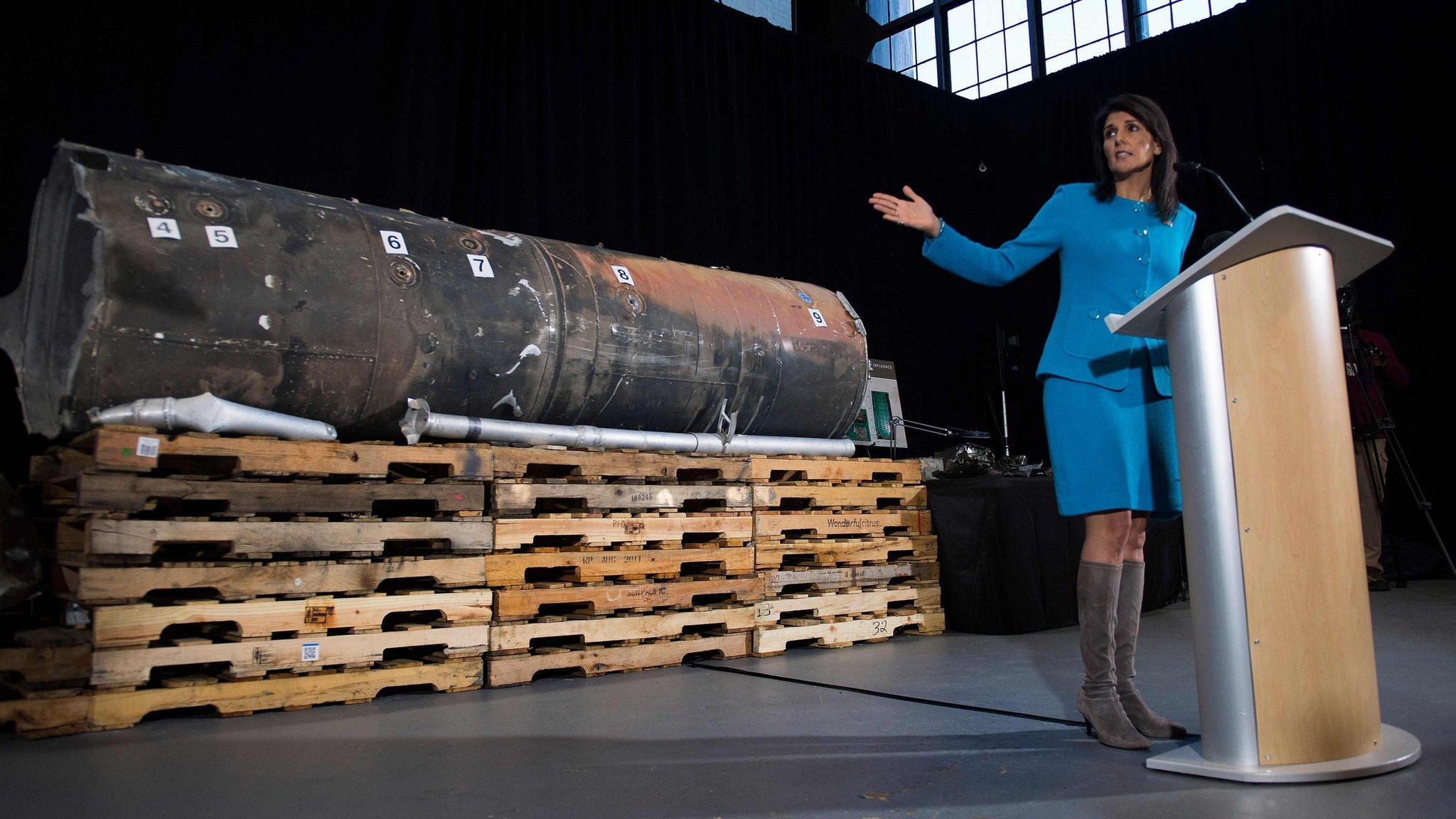
- Published14 April 2023
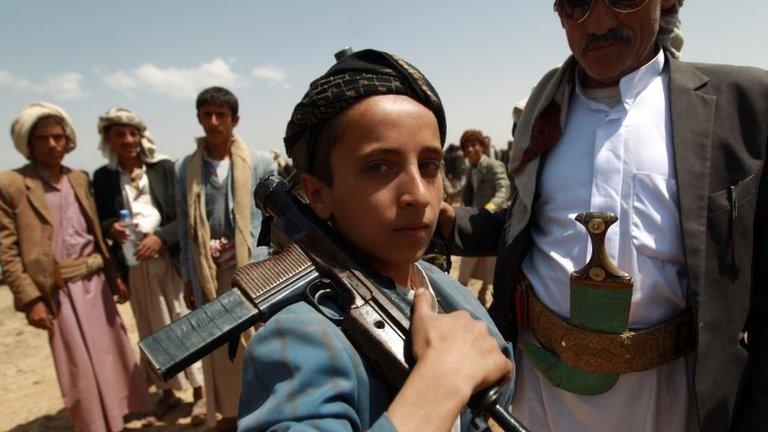
- Published14 December 2017
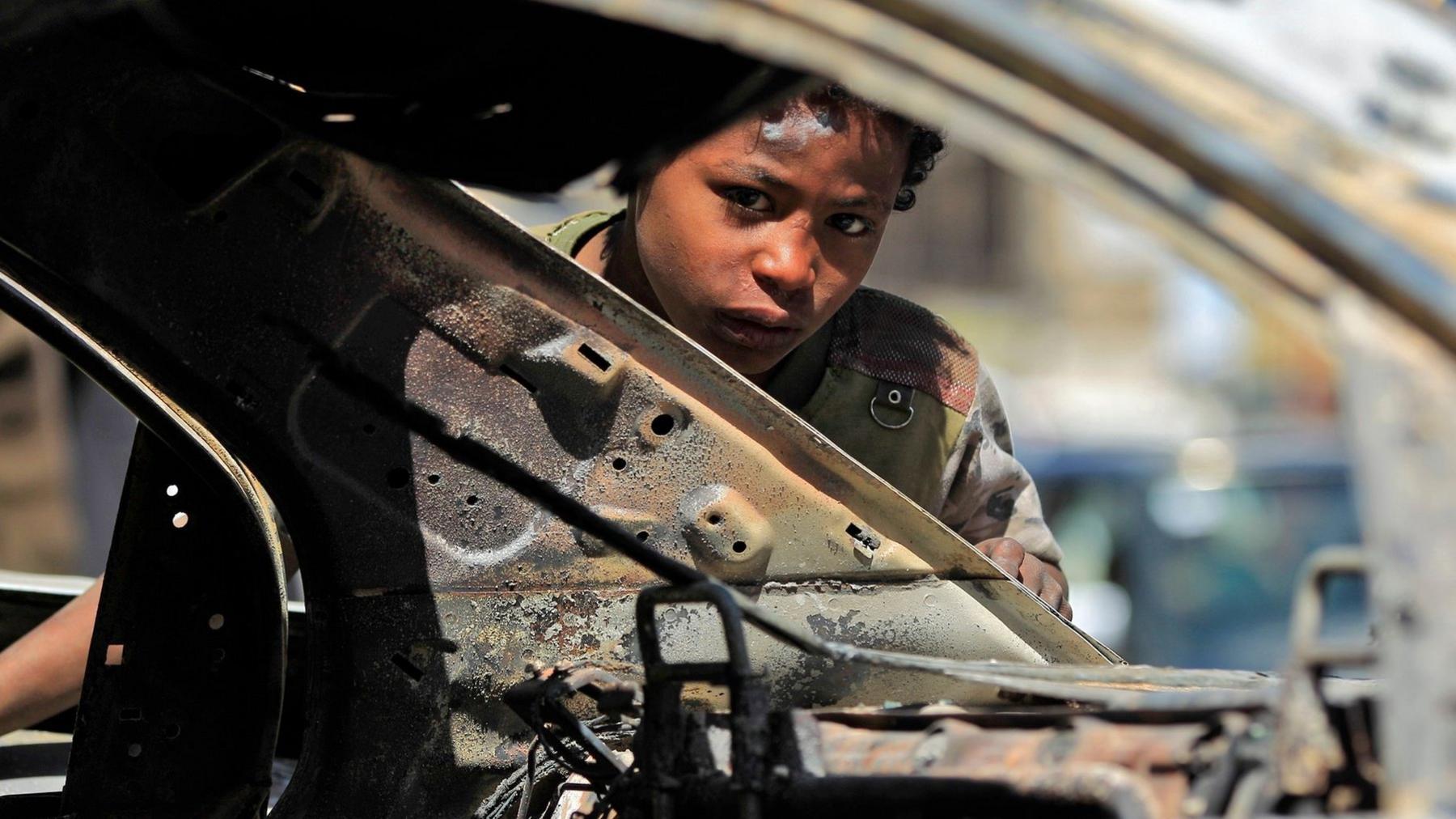
- Published4 December 2017
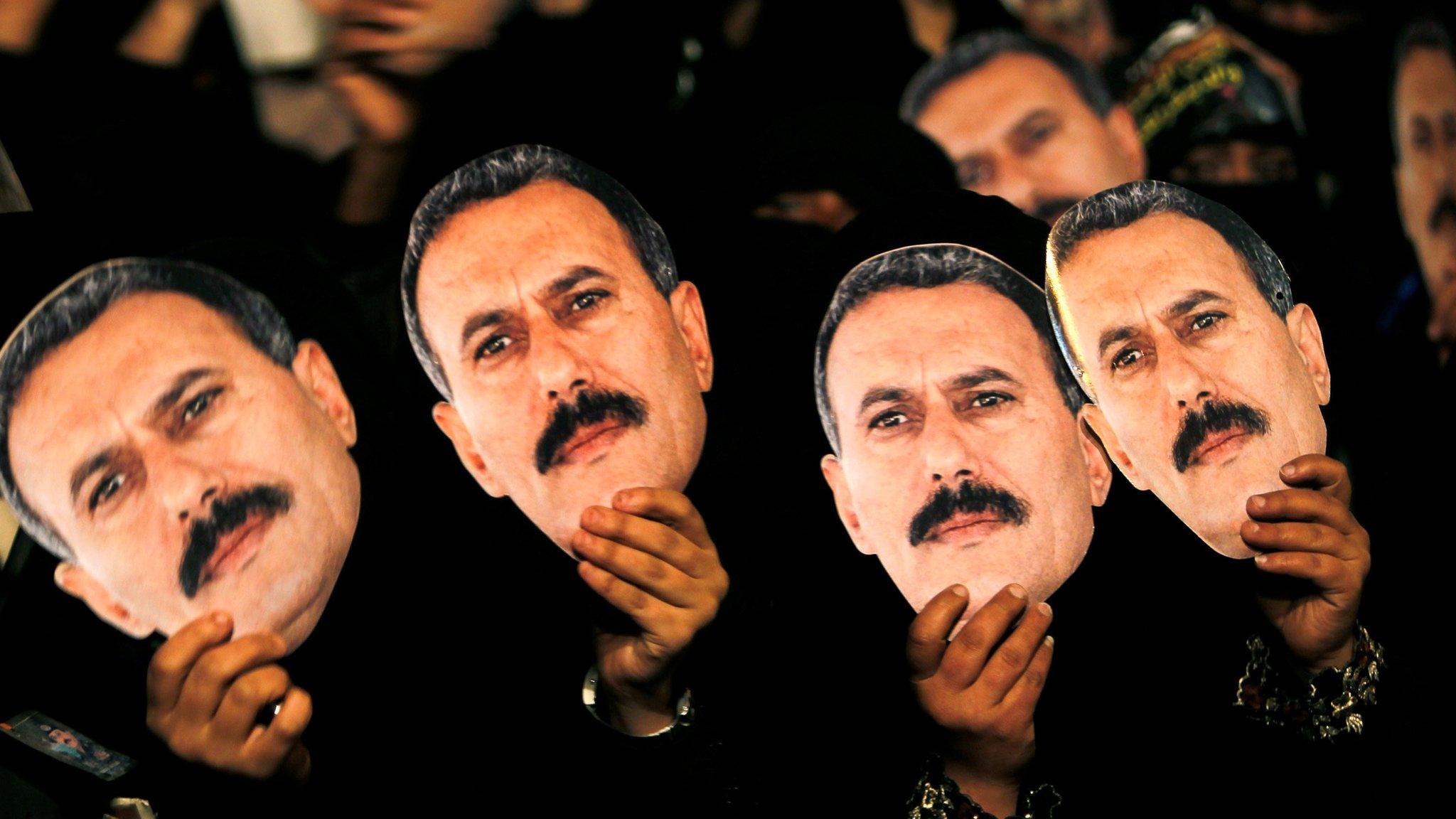
- Published26 November 2017
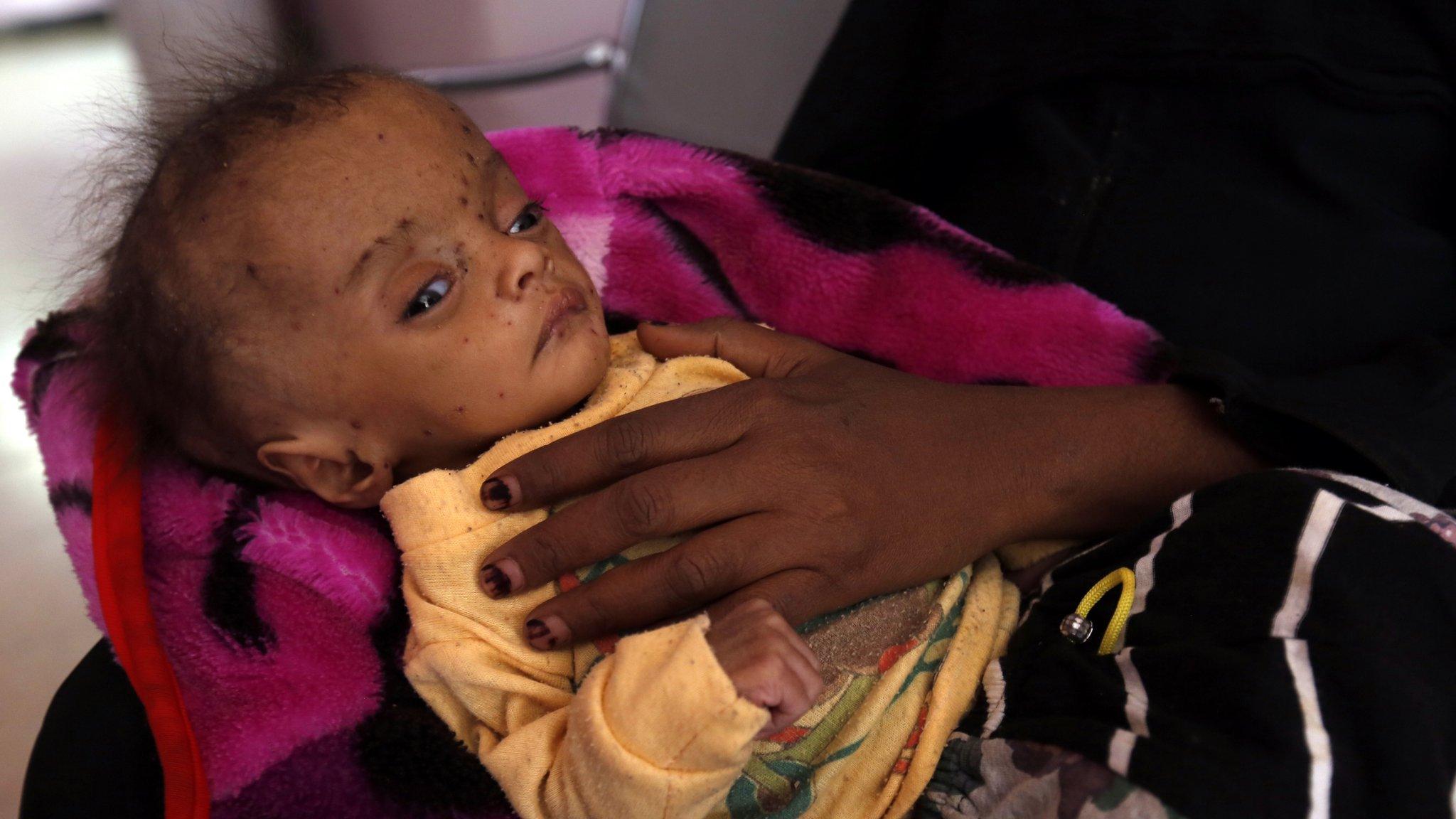
- Published19 November 2017
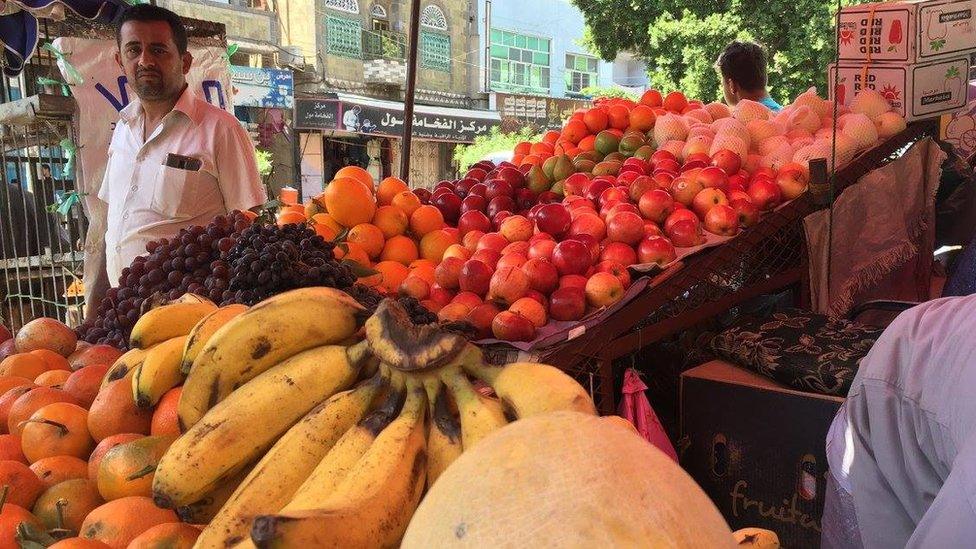
- Published1 December 2016
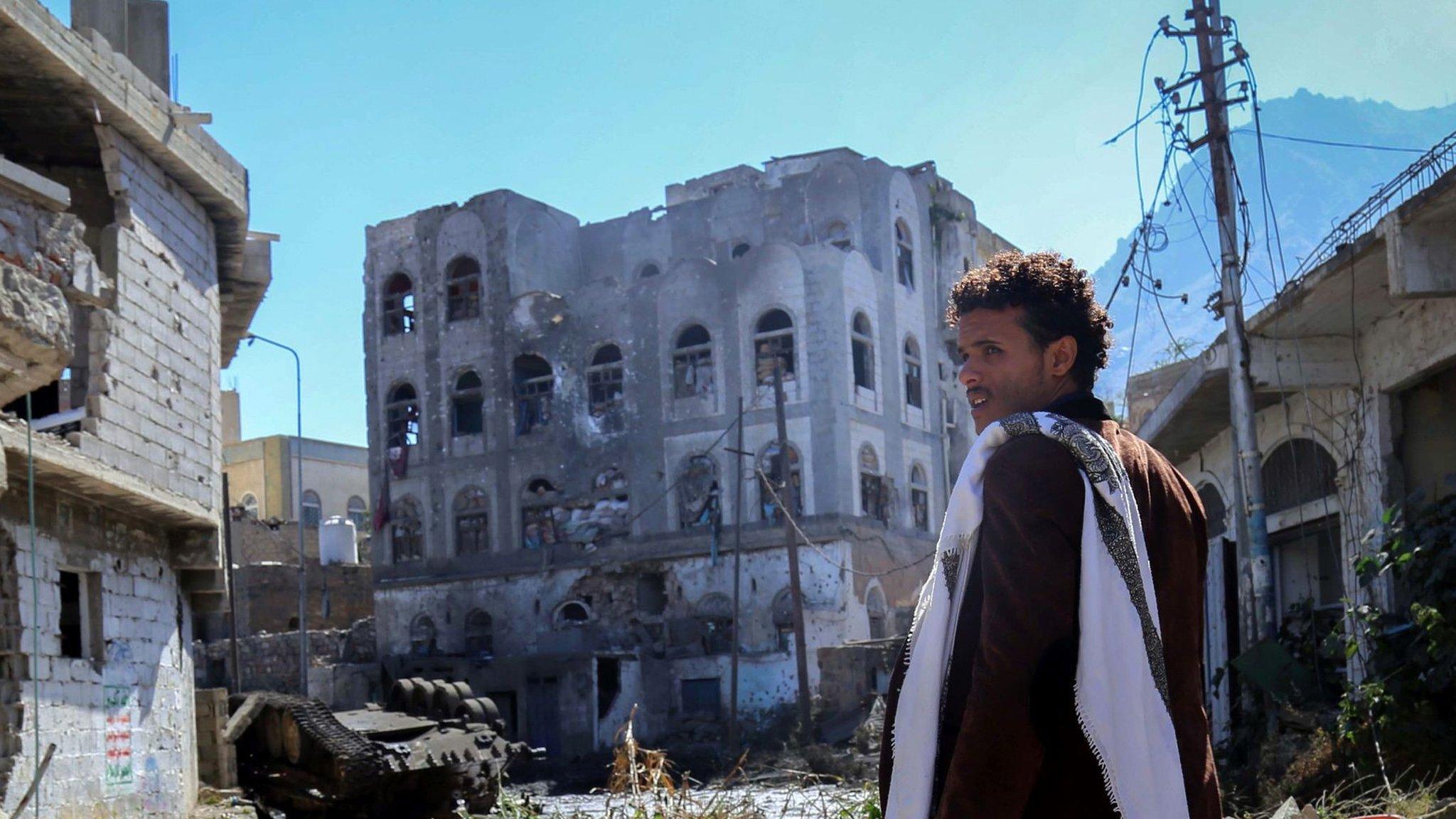
- Published13 October 2017
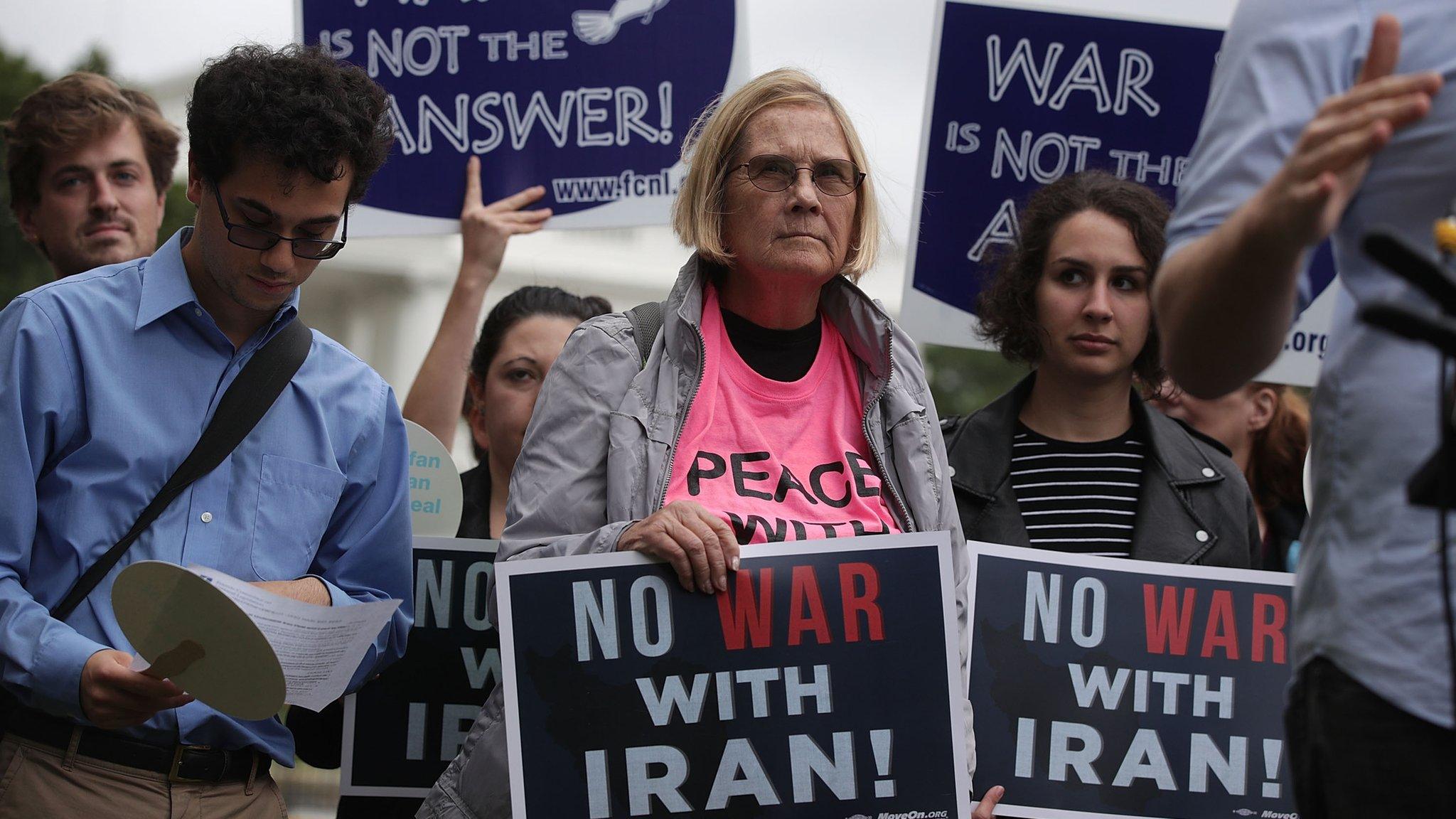
- Published23 August 2017
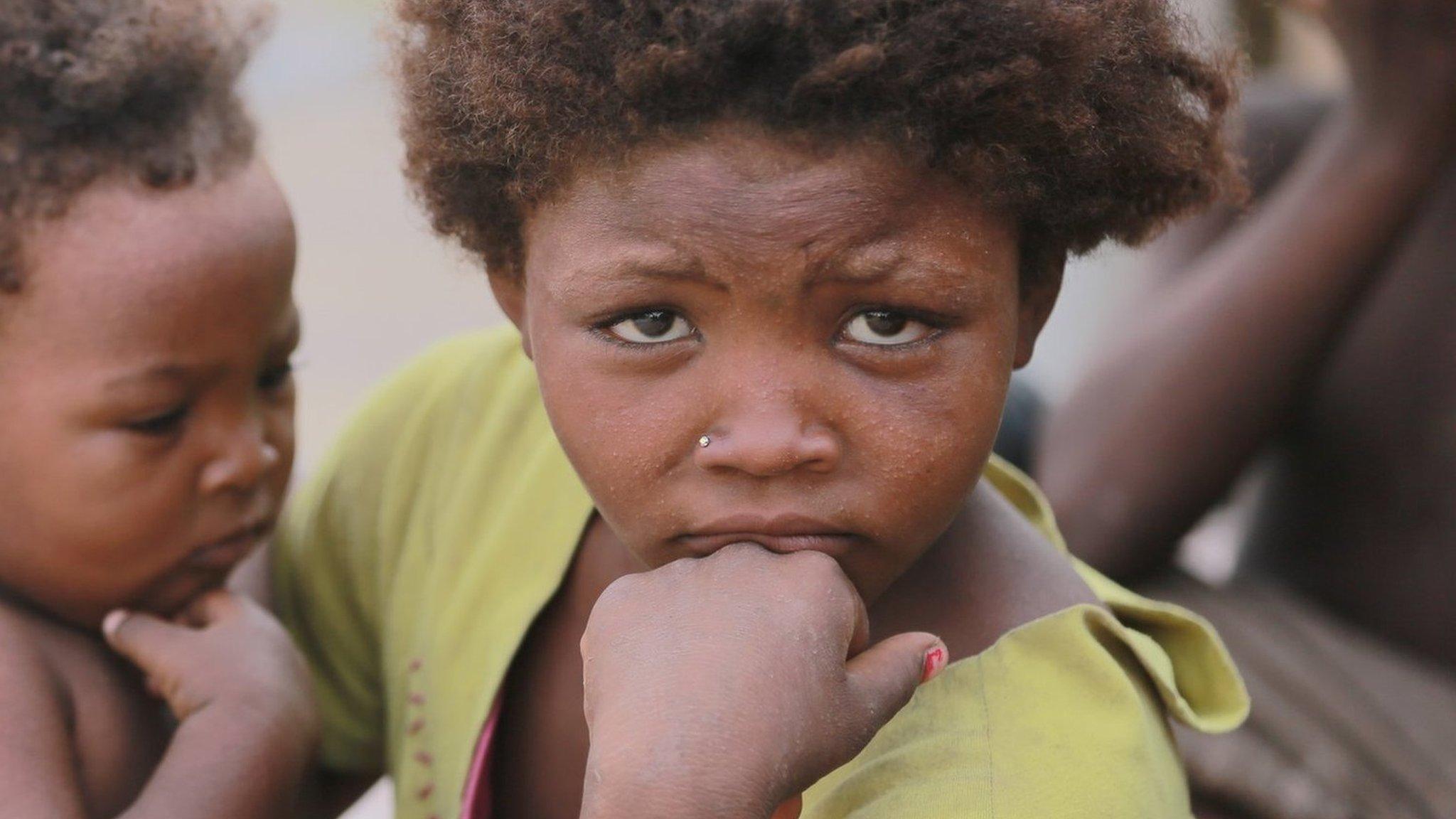
- Published9 October 2018
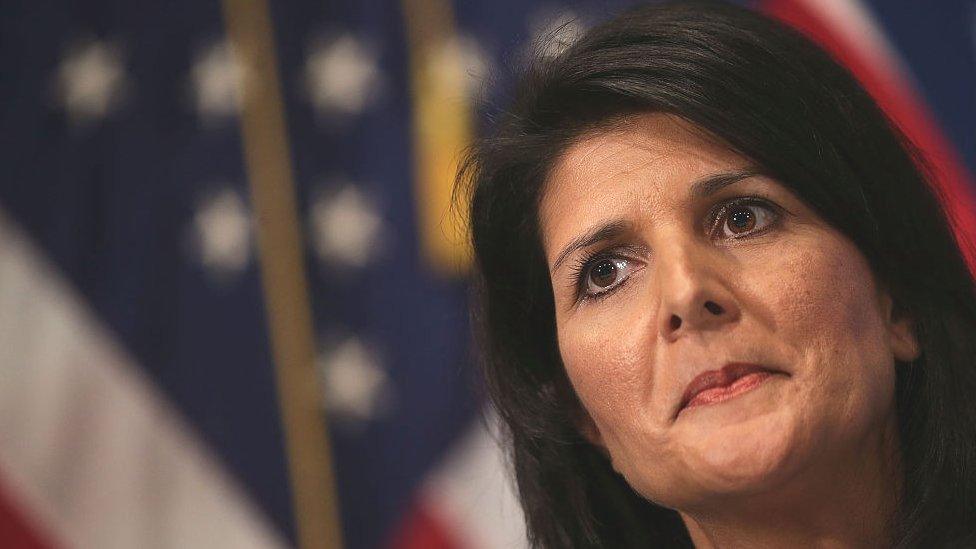
- Published4 November 2016
